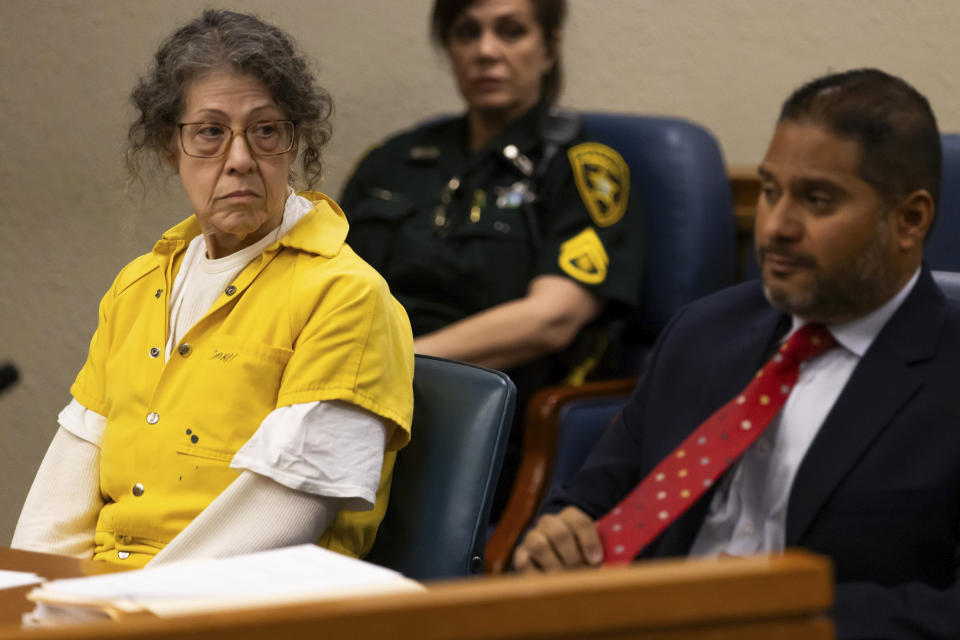On Monday, a Florida woman, Susan Lorincz, was sentenced to 25 years in prison for the fatal shooting of her neighbor, Ajike Owens, a Black mother of four. The case, which ignited widespread outrage, contributed to the ongoing national discussions about gun violence and racism.
In August, a jury convicted the 60-year-old Lorincz of manslaughter for the June 2, 2023, killing of Owens, who was 35 and known as A.J. The incident occurred outside Owens’ home in Ocala, a small city located about 80 miles northwest of Orlando.
Initially, Lorincz faced a maximum sentence of 30 years for charges that included manslaughter with a firearm and assault. However, Bill Gladson, the state attorney for Florida’s fifth judicial district, confirmed in June that the sentence would be determined later.
On Monday, Judge Robert Hodges stated that Susan Lorincz had plenty of time to contact law enforcement and that there was no genuine threat of Ajike Owens attempting to break into her home. “The shooting, I find, was driven more by anger than fear,” Judge Hodges remarked before delivering the sentence.

Following Owens’ death, the authorities and prosecutors faced criticism, particularly for charging Lorincz with manslaughter instead of second-degree murder and for not arresting her immediately after the shooting. The decision was influenced by Florida’s “stand your ground” law, which allows individuals to use force in self-defense situations. This law has been controversial and has been cited in similar cases in states like Missouri, following the high-profile 2012 shooting of Trayvon Martin, a Black teenager, in Florida.
In explaining the sentencing, the judge acknowledged the severity of Susan Lorincz’s actions but stated that there was not enough evidence to prove the specific elements required for second-degree murder. Both second-degree murder and manslaughter with a firearm are considered first-degree felonies under Florida law.
Lorincz shot Ajike Owens amid an ongoing dispute between them over neighborhood children, including Owens’ own kids, who were reportedly playing near Lorincz’s home. According to trial testimony and the arrest affidavit, Owens confronted Lorincz after learning that the older woman had argued with the children, yelled at them, and thrown a roller skate at one of them.
On the day of the shooting, Owens, accompanied by her 10-year-old son, went to Lorincz’s house to confront her. Owens knocked on the door and demanded that Lorincz come outside. In response, Lorincz fired a .380-caliber handgun through the door, striking Owens in the upper chest. By the time authorities arrived, Owens was unresponsive and was later pronounced dead at the hospital. The door was locked when Lorincz fired the shot, and Owens was unarmed.
Owens’ mother, Pamela Dias, shared her grief, revealing that her grandson, the 10-year-old boy who had been hit by the roller skate, witnessed his mother’s death and felt guilty for not being able to save her. Dias expressed disbelief at the situation, asking, “When does a person get shot for knocking on a door?”
Throughout her trial, Susan Lorincz’s defense attorneys argued that she acted in self-defense when she shot Ajike Owens. Lorincz herself maintained this claim in interviews with law enforcement after Owens’ death, telling authorities that she feared for her life when Owens approached her door. She stated that she fired the gun because she felt she was in “mortal danger,” according to the arrest affidavit.
Lorincz also explained that a previous altercation with Owens prompted her to purchase the handgun, which she claimed she had only used a few times at a shooting range the year before. Witnesses, however, told investigators that Lorincz had a history of harassing children in the neighborhood, using racist slurs, including against Owens’ children. Lorincz admitted to some of these accusations in conversations with detectives but denied intentionally throwing a roller skate at a child before the shooting occurred.
After a weeklong trial, a jury composed entirely of white jurors found Susan Lorincz guilty of manslaughter with a firearm on August 16.
State Attorney Bill Gladson, whose team prosecuted the case, issued a statement calling the case a tragic reminder of the destructive consequences of gun violence. He highlighted the impact of Lorincz’s actions, which left Owens’ four young children without their mother—a loss that will affect them forever. “While today’s verdict can’t bring AJ back, we hope it brings some measure of justice and peace to her family and friends,” Gladson said.
Civil rights attorney Ben Crump, who has represented the families of Trayvon Martin, George Floyd, and other victims of racial violence, also represented Owens’ family. In a separate statement, Crump called the conviction “a critical step in securing justice” for Owens and her loved ones. He expressed gratitude for the jury’s guilty verdict and emphasized the tragic loss of Owens, a devoted mother, whose children, including a young son who witnessed the shooting, now have to cope with her death. “While nothing can erase the pain they’ve endured, today’s decision sends a clear message that senseless violence will be met with accountability,” Crump stated. He promised to continue supporting Owens’ family as they heal and work toward a future where no family has to endure such a devastating loss.


Comments are closed, but trackbacks and pingbacks are open.